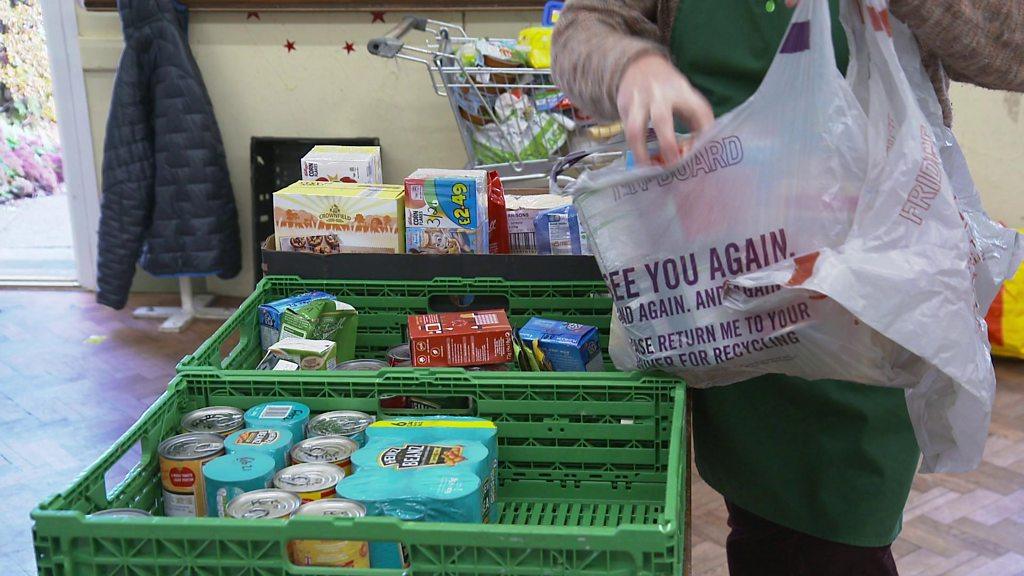The Trussell Trust: More food parcels handed out than ever before
- Published
- comments
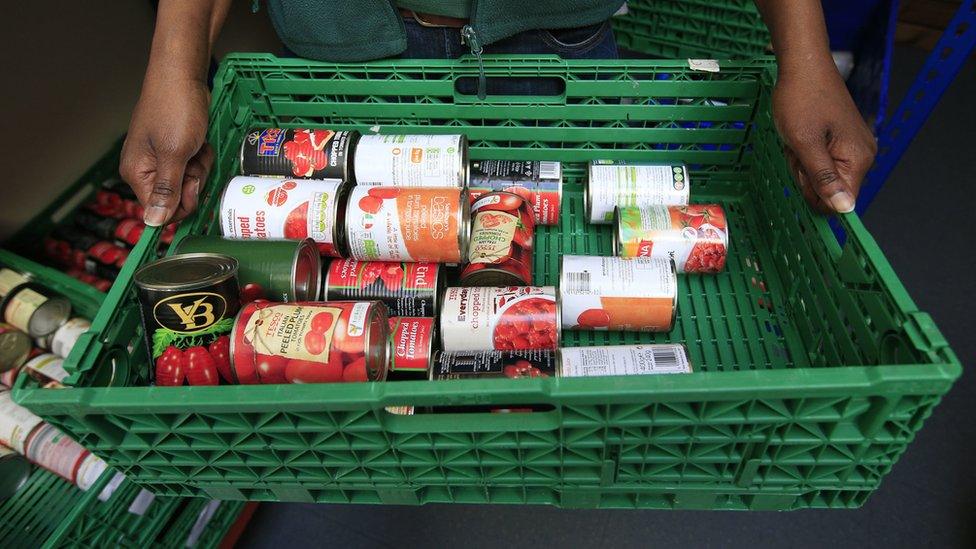
In the past year, more than one million children received food parcels from food-banks.
That's according to the Trussell Trust, the UK's largest food-bank provider, who has said more food parcels than ever before have been handed out - nearly three million in total.
The cost of living crisis means everyday items are more expensive, so people are using food-banks to get food and basic items for free or reduced cost.
Trussell Trust chief executive Emma Revie said: "It's the first time that we've distributed over one million parcels for children - an awful first to have."
Food-banks provide food for free, for those who are struggling to afford to buy enough to eat.
They have basic and essential items, such as toilet roll and soap.
A lot of the food is donated, but the organisers and charities also buy food to provide.
Watch our Newsround Special: Kids in a cost of living crisis
In the Trussell Trust's annual report, it found a 37% increase on the number of food parcels being handed out from the previous year - that's to children and adults - and in December it says gave out a food parcel every eight seconds on average.
It also found that, more than three-quarters of a million people who were handed a food parcel, had never used one of its food-banks before.
The Trust says the need for support was more than during the first year of the pandemic - when some people lost their jobs, or regular income during that time.
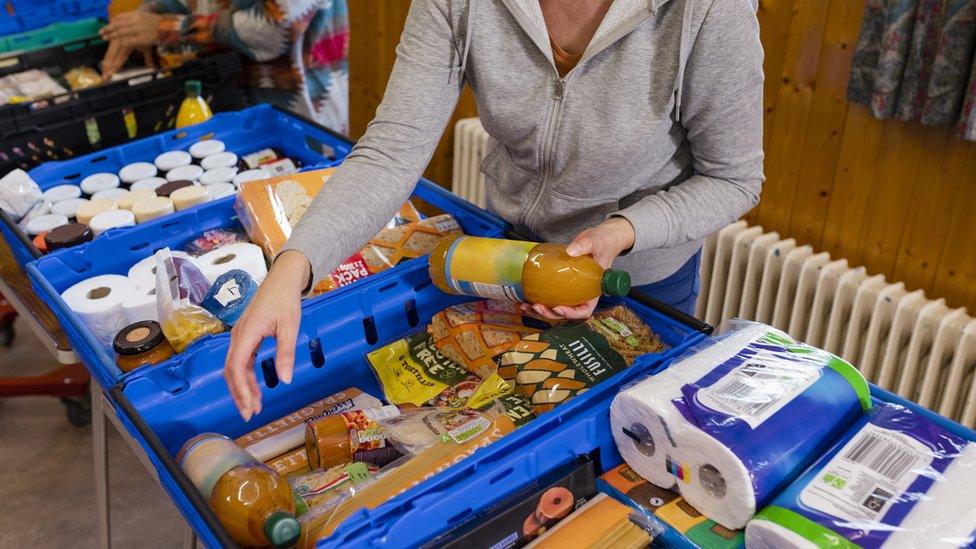
The Trust provides emergency food and support from almost 1,650 centres across the country.
Demand was high in all areas, but especially in north-east of England, east England, south-west England and Wales.
A total of 2,986,203 food parcels were given out between April 2022 and March this year.
There were 1,139,553 parcels handed out for children, that's up from 835,879 the year before and a rise from less than 500,000 in the 2017-2018 year.
What's being done?
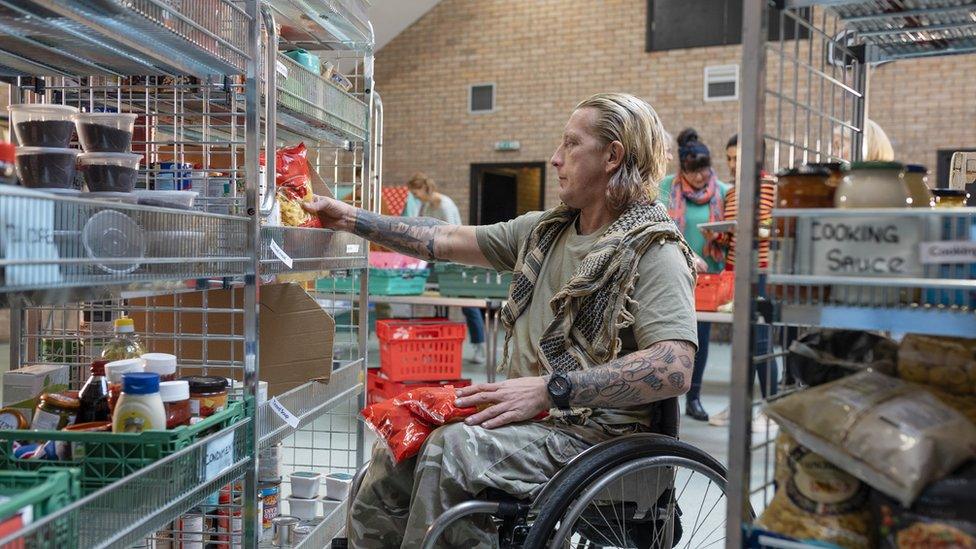
Food and energy costs have been increasing recently, but the trust say that the pandemic and the cost of living crisis doesn't explain the increased demand over the past five years, Revie said.
The charity are asking for the government to make a commitment that the basic level of benefits people get will always be enough to afford the essentials.
Food banks were set up to provide short-term support to people in an emergency - they are not a lasting solution to hunger and poverty.
The Department for Work and Pensions said: "We are committed to eradicating poverty and we recognise the pressures of the rising cost of living, which is why we have uprated benefits by 10.1% as well as making an unprecedented increase to the National Living Wage this month.
"We are also providing record levels of direct financial support for the most vulnerable - £1,200 last year and a further £1,350 in 2023-24."
- Published15 November 2023

- Published18 November 2022
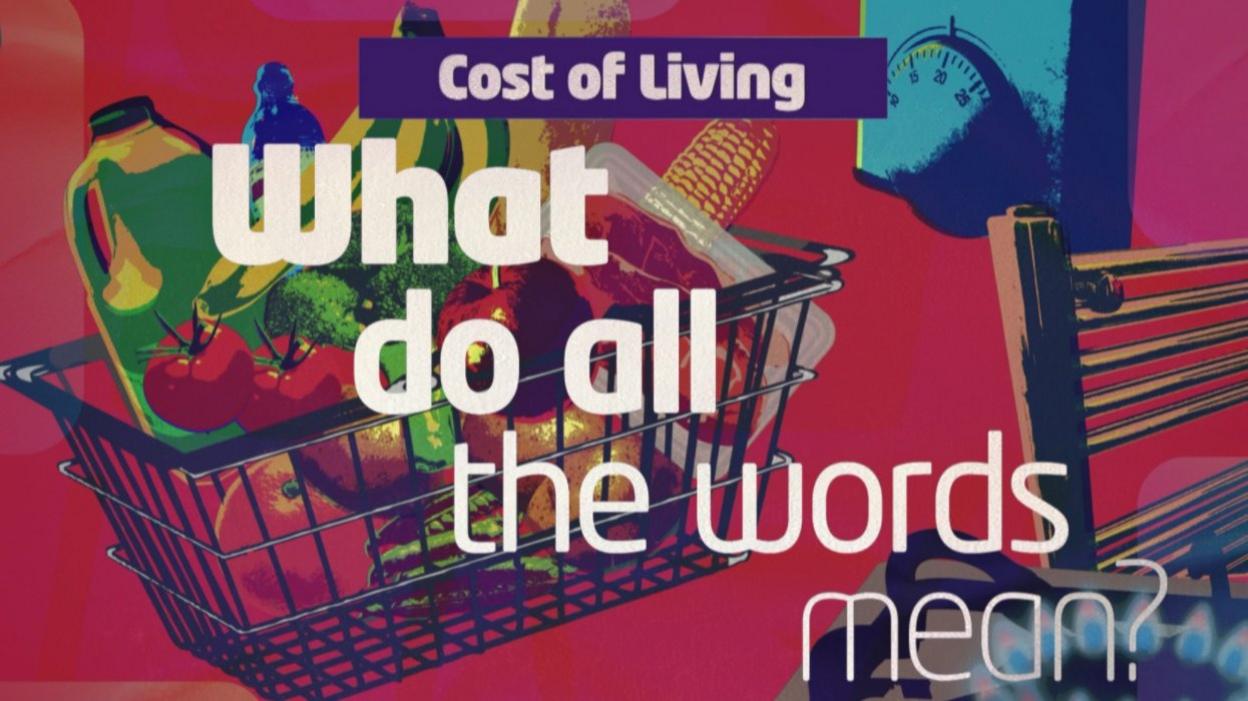
- Published12 November 2020
